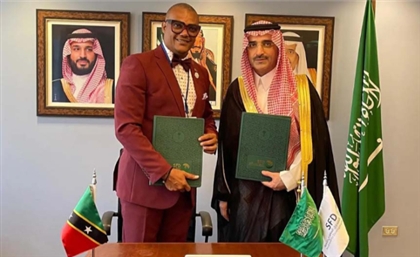Trial Set for Jay-Z Illegal Use of Abdel Halim Hafiz's Song
Jay-Z has been embroiled in a legal battle over sampling Abdel Halim Hafez's famed song Khosara Khosara in the rapper's global hit Big Pimpin. After 8 years a trial date has finally been set to settle the dispute.

Who could forget Jay-Z’s massive global hit song Big Pimpin? For Egyptians the song instantly connected as the addictive hook clearly sampled Khosara, Khosara, a track sung by Egyptian legend Abdel Halim Hafez. The song, composed by Baligh Hamdi, was famously featured in the beloved 1960’s Egyptian film Fata Ahlami. 15 years later this classic song still continues to haunt Jay-Z, not because of its global popularity, but because for the last 8 years it has been at the center of a copyright infringement lawsuit by the Egyptian composer’s heir.
The legal battle has been long winded, taking many twists and turns but seems somewhat closer to a resolution as on Monday a judge scheduled the trial to begin on October 13th. Resiliently fighting till the bitter end is Osama Ahmed Fahmy, a nephew of the late Egyptian composer of the song, Baligh Hamdi, who believes he is entitled to compensation for Jay-Z's mutilation of the original song and has also named Paramount Pictures, Warner Music, UMG and MTV in the lawsuit. As years passed with little to no gains made, Fahmy realised that he would have to change his argument in hopes of reaching his desired verdict.
According to the Hollywood Reporter in a February motion for summary judgement, Fahmy tried a new strategy, putting forth a motion that states; “This Court previously ruled that a genuine issue of disputed fact exists as to whether the agreements upon which Defendants rely grant them the right to make a derivative work from Khosara Khosara.”
In layman's terms, Fahmy contends that the record company that licensed Khosara Khosara to producer Timbaland never had the right to license the song in the first place. At the heart of the case is a deal that was made between EMI Arabia and Timbaland. Fahmy contests that he had licensed the song to Egyptian record label Sout El Phan, and that EMI Arabia’s license to the song expired in 2007. Furthermore, he claims that although Sout El Phan is permitted to license the song to companies like EMI Arabia, but that the EMI affiliate didn’t have the right to license the song itself without his permission.
Arguing in court, Fahmy’s attorney, Keith Wesley claimed “Sout El Phan said EMI Arabia, you can use it, but you can’t go out and give away the rights to someone else. I don’t have the authority to do that, and that the copyright owner hasn’t given me rights to do that.” While the record company’s lawyer, David Steinberg claims Fahmy did give consent arguing, “He had the chance to say, ‘I don’t want to allow sublicenses.’ The whole notion of whether he consented to them is frankly undisputed.”
Agreeing with the plaintiff, the federal judge on the case, Christina Snyder decided that the terms of the licensing agreement presented triable issues, however also noted that the case has been going on for way to long saying, “I think this case really has to head toward some form of resolution sooner rather than later.”
At the end of the hearing the judge decided to deny Fahmy’s request for a summary judgment, instead deciding to schedule a trial date for October 13th, in hopes of finding a resolution to this almost decade long legal battle.
- Previous Article Gouna is Taking you on #TheHunt This Easter Break!
- Next Article Zeid Hamdan: Beirut's Underground Sound At Cairo Jazz Club
























